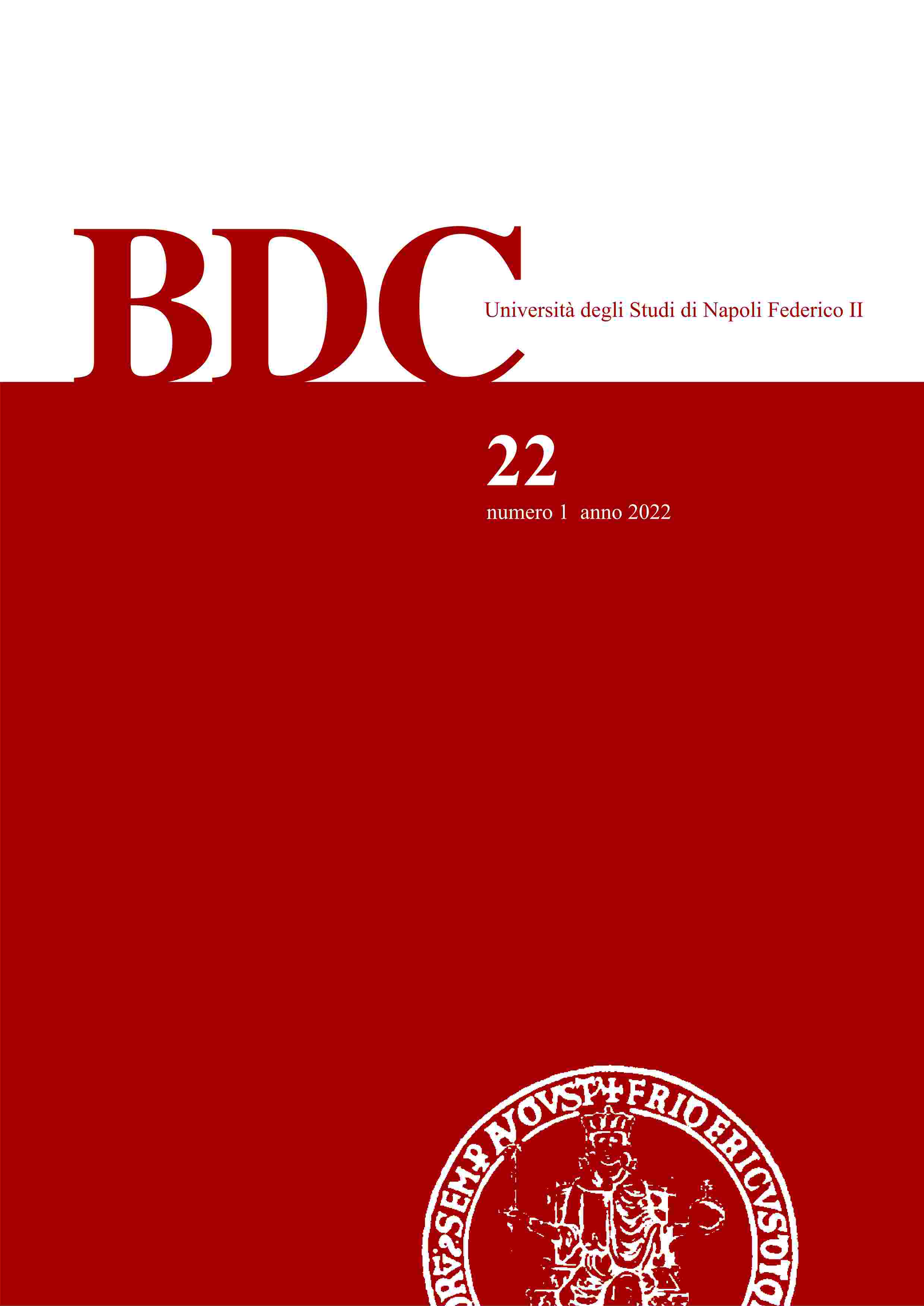ADAPTIVE REUSE IN CIRCULAR ECONOMY: THE GOVERNANCE MODEL IN THE HORIZON 2020 CLIC WORKSHOP
DOI:
https://doi.org/10.6093/2284-4732/9361Abstract
This contribution is part of the European Horizon 2020 CLIC project, within the codesigned Workshop launched thanks to the collaboration between the CNR IRISS and the
Municipality of Salerno, which aimed at selecting virtuous proposals for adaptive reuse. In the perspective of circular economy, which is applied to the adaptive reuse of cultural
heritage, this paper proposes a new form of capital regeneration to enable the transition of settlement systems towards a cohesive, sustainable and de-carbonized growth. The case
study describes the design proposal of Edifici Mondo, refined during the Workshop experience, through a methodology attentive to the integration of participatory approaches
and circularity. The result is the “circular business model”, obtained from the workshop process, strategic tool for the recovery of cultural heritage settlements.
Keywords: adaptive reuse, urban regeneration, circular business model.

